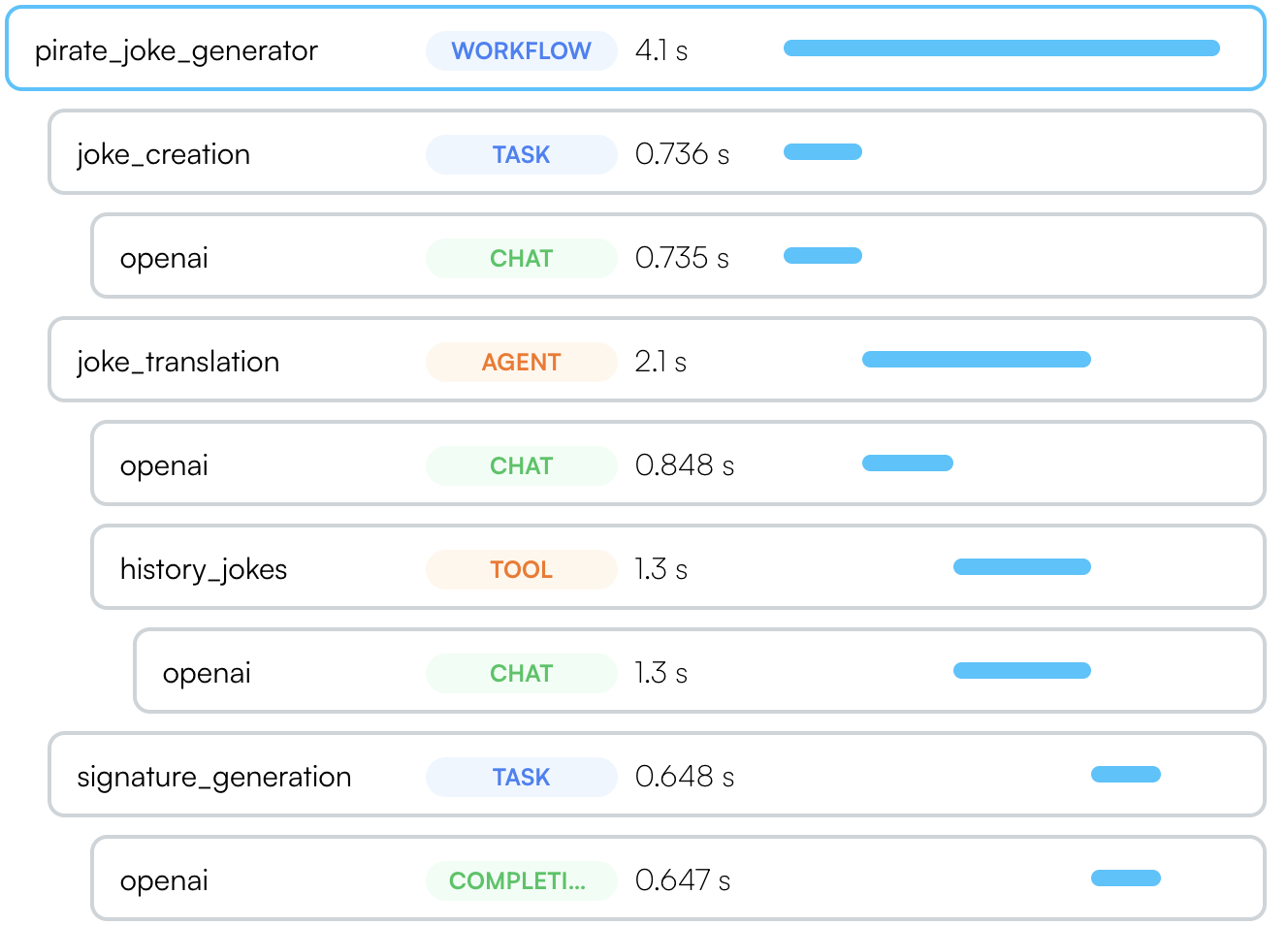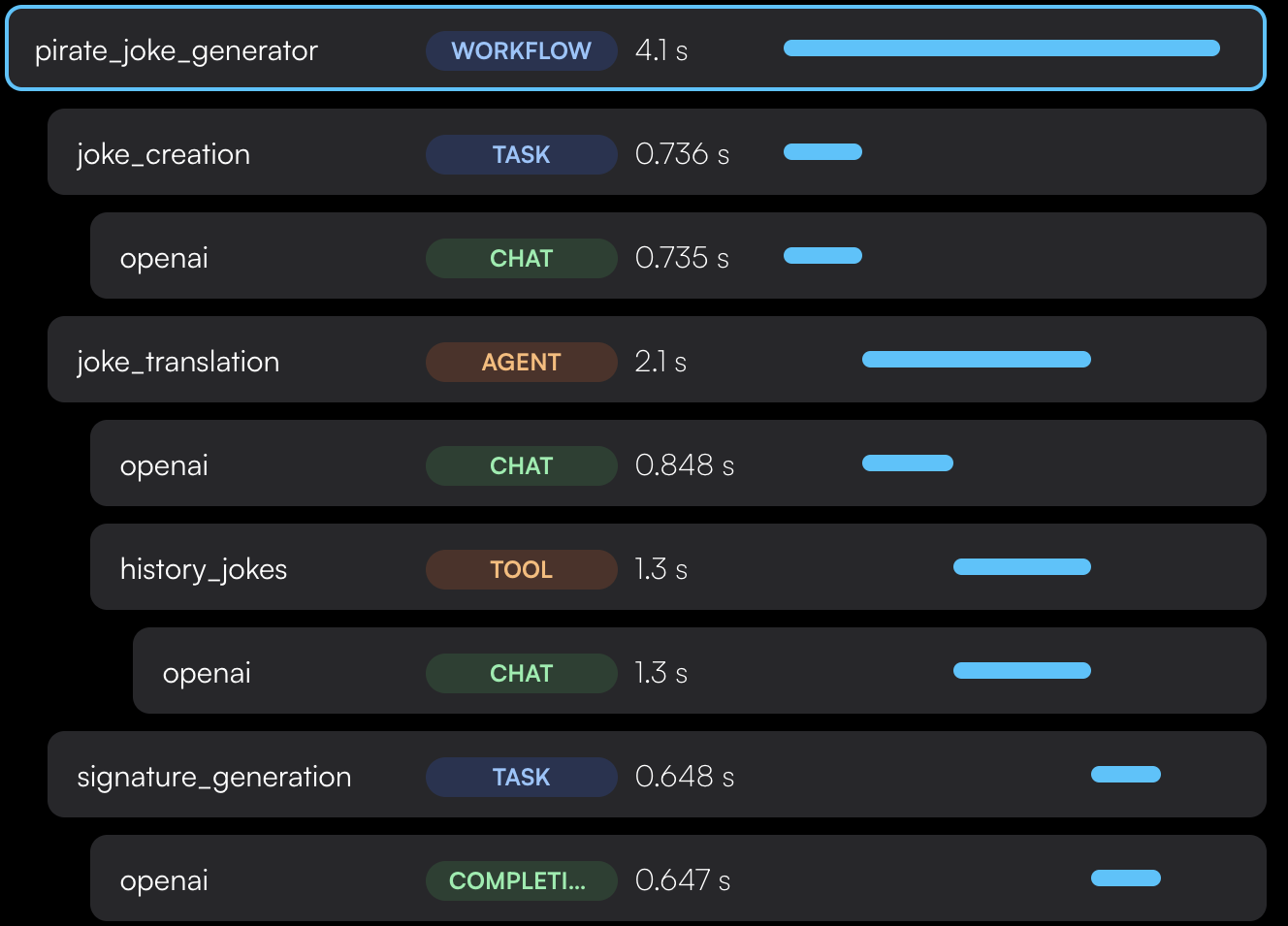Install the SDK
Run the following command in your terminal:In your LLM app, initialize the Traceloop tracer like this:If you’re running this locally, you may want to disable batch sending, so you can see the traces immediately:
If you’re using Sentry, make sure to disable their OpenTelemetry configuration
as it overrides OpenLLMetry. When calling
Sentry.init, pass
skipOpenTelemetrySetup: true.Annotate your workflows

withWorkflow() function call.We also have compatible Typescript decorators for class methods which are more convenient.Configure trace exporting
Lastly, you’ll need to configure where to export your traces.
The 2 environment variables controlling this are Set the API key as an environment variable in your app named Done! You’ll get instant visibility into everything that’s happening with your LLM.
If you’re calling a vector DB, or any other external service or database, you’ll also see it in the Traceloop dashboard.
TRACELOOP_API_KEY and TRACELOOP_BASE_URL.For Traceloop, read on. For other options, see Exporting.Using Traceloop Cloud
You need an API key to send traces to Traceloop.
Generate one in Settings by selecting
a project and environment, then click Generate API key.⚠️ Important: Copy the key immediately - it won’t be shown again after you close or reload the page.Detailed instructions →
TRACELOOP_API_KEY:

